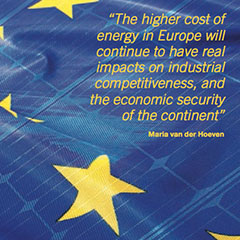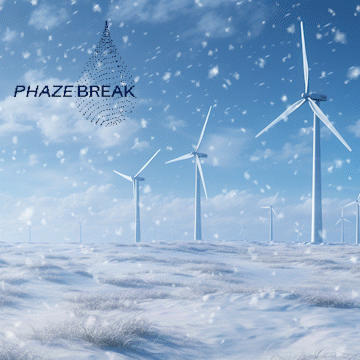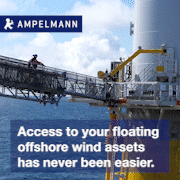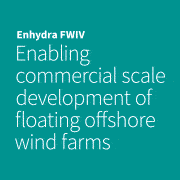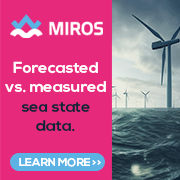Europe’s energy trilemma – achieving energy security, sustainability, and economic prosperity – is a hot topic right now, and is receiving attention from everyone from politicians to policymakers. But what exactly is it? Allow the IEA’s Executive Director Maria van der Hoeven, to explain all.
We all know that coal dominated global energy production for many years, and enjoyed its golden age from about 1900 to 1930. In Europe, coal dominated even earlier. Subsequently, and particularly after the war, coal became much less of a priority in Western Europe – not because coal disappeared, but because oil and natural gas entered the scene in a big way.
Compared to coal they were cleaner and safer fuel sources. For oil, that meant relying on international trade and supply, particularly from the Middle East. The International Energy Agency was founded in the wake of the 1973 oil crisis – a crisis in which this country played a big role. It was the Netherlands that was initially targeted for an oil embargo due to political disagreement with Arab producers.
The core job of the IEA is to push for greater energy security. What do we mean by energy security? We define it as the uninterrupted availability of energy sources at an affordable price. As we celebrate the IEA’s 40th anniversary, I am pleased to say that there is generally greater energy security today than there was in the early 1970s.
Today, the IEA works with OPEC and other major oil producers as key partners, not as adversaries. And very near to here, in Geleen, the Saudi Arabian petrochemical firm SABIC maintains an extremely important production centre. That is a far cry from the 1970s. It was during that same time in the 1960s and 1970s that natural gas came to dominate European power production and heating.
Of course, the Netherlands was and remains one of the most important natural gas producers in Europe, and so rather than import, this country became a major exporter and supplier to our European neighbours. So to a much greater degree than during the age of coal, international energy trade and interdependency became the norm, among European countries and globally as well.
Today we can see those effects – both in Eastern and Western Europe. And getting the European gas market right – improving its integration and interconnection – is extremely important when we look at the political and economic realities of today … and also when we look at the more recent but extremely important issue of climate change.
At the IEA, our main priorities reflect the energy “trilemma” faced by policy makers. That is, how to achieve energy security, environmental sustainability, and economic prosperity simultaneously. While our principal objective will always be to improve energy security, we see these three challenges not in conflict, but as mutually reinforcing.
That means transitioning to more renewable energy in a way that is affordable, and smart. But it also means recognizing a role for cleaner fossil fuels in the future. Dutch and Norwegian gas has provided emission reductions in industry, heating and manufacturing, particularly where it replaced coal.
And gas-fired power plants serve as flexible back-up for variable renewables – helping to usher in the era of clean and sustainable energy that our societies are aiming for.

